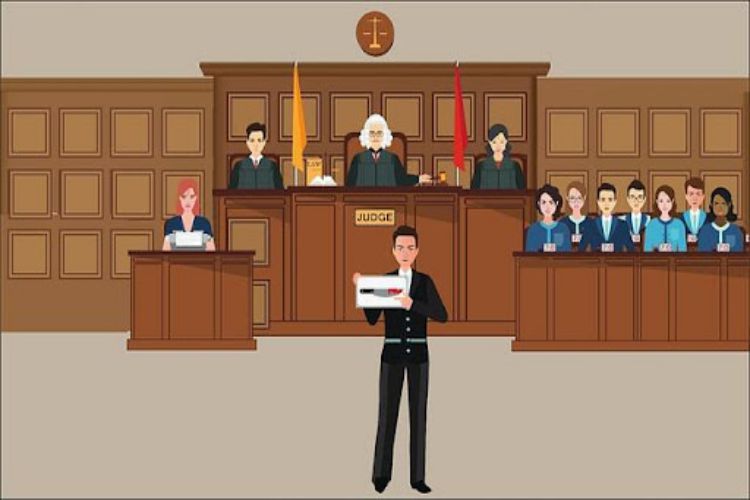While lawyers play a central role in law practice, they are not alone in their endeavors. Behind every successful lawyer is a dedicated team of legal support staff working tirelessly to ensure that the legal machinery operates smoothly. From paralegals and legal assistants to court reporters and law clerks, the legal support staff plays a vital role in assisting lawyers with their casework and ensuring the efficient functioning of legal processes. This article will explore the indispensable contributions of legal support staff, their diverse roles, and the resources they bring to the table in law.

The Versatile Paralegal
Paralegals are the unsung heroes of the legal world. They are skilled professionals who assist lawyers in various aspects of their work, helping them tackle multiple tasks more efficiently. Paralegals conduct legal research, prepare and organize case files, draft legal documents, and even assist in trial preparation. Their research expertise allows them to find precedents, relevant statutes, and regulations that can strengthen a case. Legal professionals, including criminal, family, or even a truck accident lawyer, heavily rely on paralegals to handle administrative tasks, giving them more time to focus on legal strategy and client interactions. The qualifications and responsibilities of paralegals can vary by jurisdiction, but many hold degrees or certifications in paralegal studies or related fields. Their understanding of legal procedures and ability to navigate complex legal databases make them indispensable assets to law firms and legal departments.
The Indispensable Legal Assistants
Legal assistants, sometimes called legal secretaries or administrative assistants, provide administrative support to lawyers. They manage schedules, handle phone calls, organize meetings, and maintain client files. Moreover, they often act as the first point of contact for clients and are responsible for creating a positive impression of the law firm or legal department. Legal assistants also play a crucial role in document management, proofreading, and ensuring all filings are completed accurately and promptly. Their organizational skills and attention to detail keep legal practices running smoothly and ensure that crucial deadlines are met.
The Stenographers and Court Reporters
Stenographers and court reporters are essential for accurately recording legal proceedings. They use specialized shorthand techniques or stenotype machines to capture every spoken word during court hearings, depositions, and other legal events. Their transcripts serve as vital records of legal proceedings and are often referenced in the later stages of a case or during appeals. Court reporters must be highly proficient in their skills, as the accuracy of their transcripts is paramount. They also play a crucial role in ensuring that the record of the proceedings is complete and accessible to all relevant parties.
The Knowledgeable Law Clerks
Law clerks, typically law students or recent graduates, provide invaluable assistance to judges and lawyers alike. Working under the supervision of judges or senior attorneys, law clerks conduct extensive legal research, draft legal opinions, and help prepare for court hearings. Law clerks often have the opportunity to gain hands-on experience and insight into the intricacies of the legal system. Many law clerks become successful lawyers, using the knowledge and skills they acquired during their clerkships to excel in their legal careers.
The Resourceful Legal Researchers
Legal research is a critical component of any legal case or matter. Legal researchers are experts in navigating vast databases, law libraries, and online resources to find relevant legal information. Their ability to unearth legal precedents, analyze statutes, and identify applicable case law is essential for building strong legal arguments. Law firms and legal departments heavily rely on legal researchers to provide thorough and up-to-date information on various legal matters. Their contributions ensure that lawyers are well-informed and have the legal knowledge to advocate effectively for their clients.
The Diligent Document Reviewers
Document reviewers play a crucial role in cases involving extensive documentation, such as litigation or corporate transactions. These individuals review and analyze large volumes of documents to identify relevant information, privileged communications, and potential evidence. Document reviewers use their attention to detail and legal expertise to ensure that nothing crucial is overlooked during the review process. Document review is often time-sensitive, especially in litigation, where deadlines for discovery can be tight. As a result, document reviewers need to be efficient and accurate in their work.
The IT and Technology Support Team
A dedicated IT and technology support team is essential in today’s technology-driven legal landscape. They handle the setup, maintenance, and troubleshooting of legal software, case management systems, and communication platforms. Their expertise ensures that lawyers and legal support staff can work efficiently with minimal disruptions. Data security and confidentiality are paramount in the legal profession, and the IT team plays a crucial role in safeguarding sensitive information from cyber threats and data breaches.
The Client Relations Specialists
Client relations specialists, also known as client liaisons or legal intake specialists, are the bridge between clients and legal professionals. They are responsible for handling initial client inquiries, scheduling consultations, and promptly addressing client needs. Effective communication and interpersonal skills are essential for client relations specialists, as they often act as the face of the law firm or legal department. Building and maintaining positive client relationships can significantly impact a law firm’s reputation and success.

While lawyers are undoubtedly the public faces of the legal profession, the contributions of legal support staff are no less critical. Paralegals, legal assistants, stenographers, law clerks, legal researchers, document reviewers, IT support teams, and client relations specialists form a comprehensive team that supports lawyers in their work and ensures the efficient functioning of the legal process.
Each legal support staff member brings unique skills and expertise to the table, contributing to the successful resolution of legal matters and the delivery of quality legal services. Their dedication, proficiency, and attention to detail make them invaluable assets in the legal world.
Recognizing and appreciating the role of legal support staff is essential for fostering a collaborative and harmonious legal work environment.
By acknowledging the collective efforts of the entire legal team, we can create a more cohesive and productive legal practice, ultimately benefiting clients and the pursuit of justice. The legal profession is undoubtedly a team effort, and the combined skills of lawyers and legal support staff make it a force to be reckoned with in the pursuit of justice and the rule of law.




